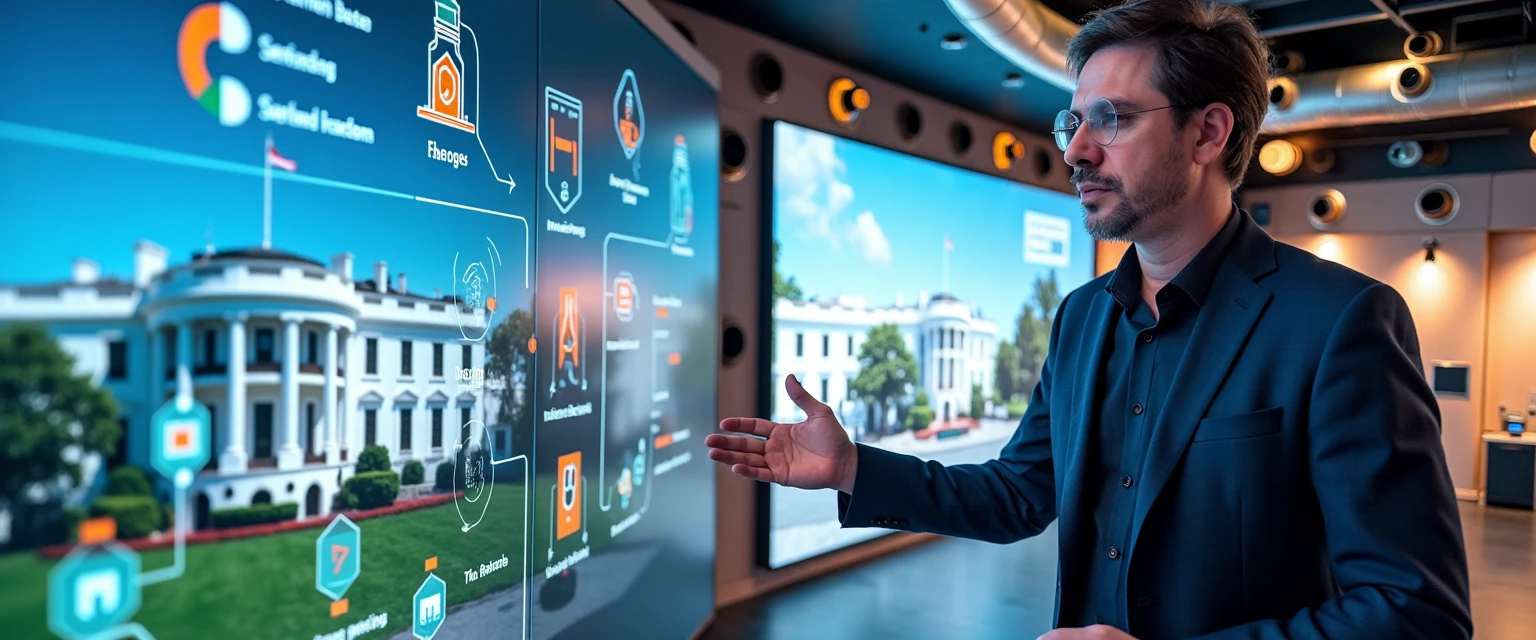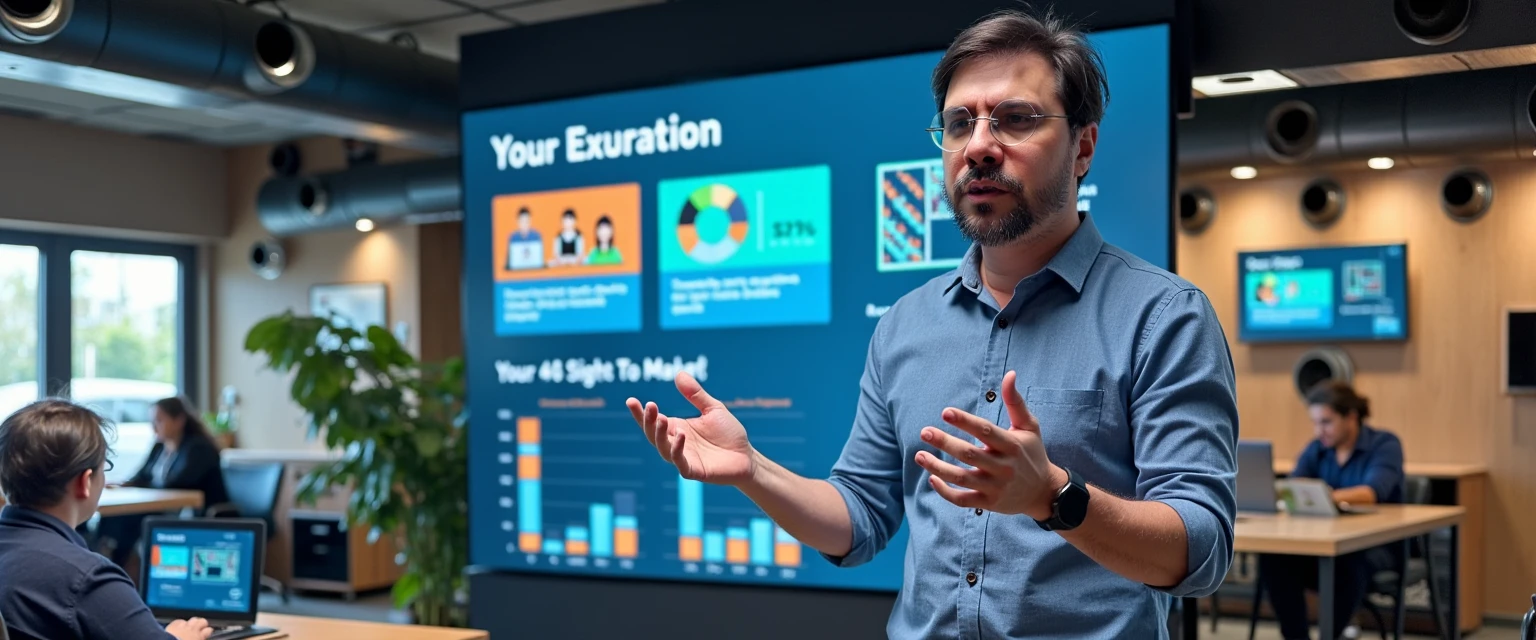AI Radar: Microsoft Hosts Rivals and 80% Entrusts Finance to AI — The New Era of Tech Democratization
May 20, 2025 | by Matos AI

The world of artificial intelligence is constantly evolving, and in the last 24 hours, we’ve witnessed strategic moves that could redefine the global digital chessboard. If you’ve been following my journey supporting startups and innovation, you’ll know that I’m always looking to understand how these technological changes affect our businesses and lives.
Today, we’ll look at the latest developments shaping the future of AI in Brazil and around the world — from Microsoft’s surprising strategy to Brazilians’ growing confidence in delegating financial decisions to algorithms.
Microsoft: From Competitor to Neutral Host in the AI Arena
In a move few saw coming, Microsoft announced during its Build conference that it will offer AI models from direct competitors in its own data centers. This includes everything from Elon Musk's xAI to models from Meta and European startups like Mistral and Black Forest Labs.
Join my WhatsApp groups! Daily updates with the most relevant news in the AI world and a vibrant community!
- AI for Business: focused on business and strategy.
- AI Builders: with a more technical and hands-on approach.
What does this mean? Microsoft CEO Satya Nadella is positioning the company as a neutral player in the AI market, something that seems contradictory after its massive investment in OpenAI. According to report from Folha de S.Paulo, these models will be provided with the same reliability guarantees as OpenAI models.
I see this strategy as extraordinarily smart. Microsoft has realized that AI infrastructure can be as valuable, if not more valuable, than the models themselves. While companies fight over the best model, Microsoft profits from having all of them running on its Azure infrastructure.
As I often tell the entrepreneurs I mentor: sometimes providing the shovels for the gold rush is more profitable than digging for the gold itself.
Windows AI Foundry: Democratizing Development
Still speaking of Microsoft, the company announced Windows AI Foundry, an evolution of Windows Copilot Runtime. According to the Digital Look, this unified platform aims to facilitate the development of AI applications directly on Windows devices.
This is transformative because it allows developers to tune, optimize, and deploy models locally, accelerating the creation of applications with AI built in. Microsoft already generates $13 billion annually from AI, part of that thanks to its partnership with OpenAI.
What amazes me is how Microsoft has managed to completely reinvent itself. From being a company that almost missed the Internet train in the past, it is now setting the pace for the AI revolution.
ChatGPT Explosion: 1 Million New Users in One Hour
OpenAI continues to break records with ChatGPT. According to Terra report, the AI assistant gained 1 million new users in just one hour after releasing a Studio Ghibli-inspired image generation feature.
To put this into perspective, when ChatGPT launched in 2022, it took five days to reach 1 million users. Now, it happens in 60 minutes. The adoption curve is becoming increasingly vertical.
This phenomenon demonstrates how creative and user-friendly interfaces can catapult the adoption of complex technologies. Generative AI is becoming mainstream, and this brings both opportunities and challenges. It is no coincidence that the company has limited free use of the feature to three images per day.
The virality of the video has also reignited the debate over copyright. More than 400 professionals from the cultural industry have criticized OpenAI for using existing works in its AI systems. This will be a legal battleground for years to come, and I’ve been following the debate closely in my WhatsApp groups about AI for business and AI creators.
Financial trust in the age of algorithms
A piece of data that surprised me was revealed by a PicPay survey during the Web Summit Rio 2025. According to the CNN Brazil, 82% of respondents are willing to let artificial intelligence monitor their spending in exchange for personalized discounts.
Even more impressive, 80% considered the possibility of delegating financial decisions to autonomous AI tools to achieve better financial returns.
The main interest is in boosting financial gains (31%) and improving financial security (28%). Anderson Chamon, from PicPay, even stated that autonomous agents represent the next step of generative AI in the financial sector, potentially eliminating the need for a banking app.
This trend is in line with what I have always argued: AI is not only transforming how we work, but also how we make decisions in areas traditionally dominated by human experts. However, I am also concerned about the speed at which we are willing to hand over control of our finances to algorithms that are still in development.
AI in education: São Paulo automates lesson correction
The government of São Paulo has announced a pilot project to use artificial intelligence to correct homework for 8th grade and 1st grade high school students. According to the CartaCapital, the AI will be applied to 5% of the exercises available on the TarefaSP platform.
THE State also reported the initiative, highlighting that the objective is to expand students' access to solving essay questions and support teachers in correcting them.
This practical application of AI in Brazilian public education is an important step towards technological democratization and can represent a significant time saving for educators, allowing them to focus on more qualitative interactions with students.
It is interesting to see how educational technology is advancing in Brazil. In my work at Sirius, I have always argued that technology should serve as an amplifier of human potential in education, not as a substitute. The challenge will be to ensure that these AI systems not only evaluate responses mechanically, but also understand students’ reasoning.
The Future of Education: AI in the High School Curriculum
Speaking of education, there is a bill (PL 2.051/2025) being processed in the Senate that provides for the mandatory inclusion of artificial intelligence, programming and cybersecurity subjects in the high school curriculum.
According to the Poder360, the project authored by Senator Marcos do Val aims to prepare young people for the challenges and opportunities of the emerging digital economy. The proposal even mentions a recent initiative by China, which began dedicating at least 8 hours per year to teaching AI in schools in Beijing.
This is an initiative that I strongly applaud. In my career as an educator and entrepreneur in the technology sector, I have seen how the lack of early technological education creates a gap in opportunities in Brazil.
In many of my talks on education and the future of work, I emphasize that we can no longer treat coding and AI as optional or extracurricular subjects. They are the new literacy of the 21st century.
The Limitations of AI: Getting Lost in Long Conversations
Not everything is rosy in the world of AI. A recent study by Microsoft Research and Salesforce, reported by TechTudo, revealed that even advanced models like Claude 3.5, Gemini 1.5 and GPT-4-turbo show a drop of up to 39% in performance when commands are divided into multiple interactions.
The study showed that even models like GPT-4.1 and Gemini 2.5 Pro lose accuracy when the same task is presented in a fragmented way. Over the course of interactions, responses can become confusing or decontextualized.
This reminds us that despite all the hype, AI still has fundamental limitations. As I often say in my mentoring sessions: don’t confuse a controlled demonstration of AI with its real-world application.
This research is particularly relevant for those developing products based on conversational AI. The ability to maintain context in long conversations will be a key competitive differentiator in the coming years.
Privacy and AI: the case of Meta
Privacy remains a sticking point in AI development. Meta has been accused of continuing to flout privacy rules with AI training data in the European Economic Area.
According to Forbes Brazil, after halting AI training in Europe last June, Meta announced plans to resume, using public posts and user interactions with Meta AI. However, privacy advocacy group noyb has raised new challenges.
The dispute revolves around whether consent should be sought or whether Meta can continue collecting data without it, raising significant legal questions about privacy and user rights.
This case illustrates the delicate balance that technology companies need to strike between advancing innovation and respecting user privacy. It’s a topic I frequently address in my events and consulting sessions on responsible AI implementation.
The AI Paradox: Potential and Risks Converge
The news over the past 24 hours shows an interesting pattern: as AI rapidly advances in adoption and capabilities, its limitations and the ethical challenges it brings are also becoming more evident.
We are at a technological crossroads. On one side, we see Microsoft democratizing access to AI infrastructure, ChatGPT making millions with creative resources, and 80% of people willing to trust their finances to algorithms.
On the other hand, we observe technical limitations in long conversations, privacy conflicts and the urgent need to prepare new generations for this new world.
As someone who has supported thousands of startups and entrepreneurs, I see the greatest opportunities at the intersection of these advances and challenges. Companies that can address AI’s current limitations, ensure user privacy, and make the technology more accessible and understandable will have significant competitive advantages.
Conclusion: The path to more democratic and responsible AI
What is clear from this panorama is that we are experiencing an accelerated democratization of AI, with tools that were previously restricted to large corporations and research labs now reaching public schools, everyday financial decisions and the hands of independent developers.
However, this democratization needs to be accompanied by responsibility and preparation. As a society, we need to:
- Invest in technological education from an early age
- Establish clear ethical standards for the use of AI
- Develop regulatory frameworks that protect rights without stifling innovation
- Create technologies that expand human potential, not replace it
In my WhatsApp groups about AI for Business and AI Creators, I have seen a growing interest from entrepreneurs and professionals in understanding how to implement these technologies in an ethical and strategic way. This is a positive sign that the Brazilian ecosystem is maturing its vision of AI.
In my mentoring work with startups and companies, I’ve helped teams navigate this new territory, identifying real opportunities and avoiding common pitfalls in AI implementation. If you’re looking to understand how to apply these technologies to your business or career, I invite you to sign up for my weekly newsletter or join our AI discussion groups.
The future isn’t something that happens to us — it’s something we build together, line by line of code, decision by decision. And the good news is that with the right tools and the right mindset, everyone can be part of building it.
✨Did you like it? You can sign up to receive 10K Digital's newsletters in your email, curated by me, with the best content about AI and business.
➡️ Join the 10K Community here
RELATED POSTS
View all



